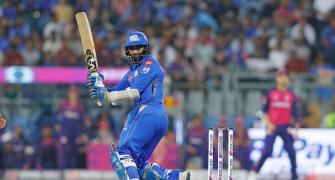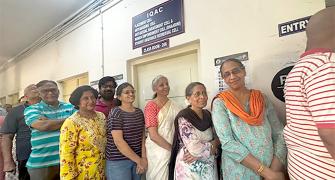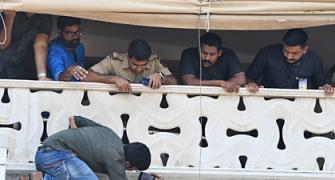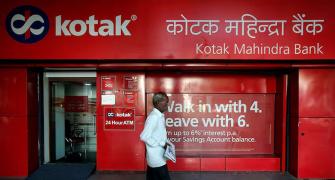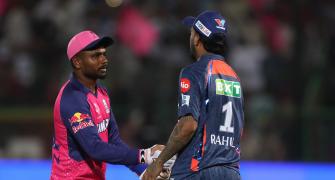At Doodarshan's marketing and ad sales division, the mood is jubilant. After years of following the slot selling mechanism or the sponsored programme format, where independent producers were producing shows at their own cost and bought air time from DD to sell spots for their respective shows, the channel has finally managed to get advertising sales under the purview of its marketing and ad sales division.
DD now functions as any other private broadcaster with total control over spot sales as well as over rates. The reason for this is two-fold.
"To own properties (shows), which can be used across the DD network as well as reused. Secondly, to ensure significant jumps in revenue," said Navin Kumar, director-general, Prasar Bharati.
"Moving out of slot selling was imperative for us as DD's rates were being undercut by producers and their respective marketing agencies and as a result the channel could never up its rates like the other channels," said Vijaylaxmi Chabra, deputy director-general, Prasar Bharati.
Moreover, with fluctuating ad rates fixed by producers, marketing agencies, these rates were becoming the benchmarks for the band rates. Also, producers were allowed to accumulate FCTs (free commercial time) and hence during lean seasons these FCTs were offloaded at discounted rates, further pulling down DD's rates.
"The situation had become so bad that some of the marketing agents had become mini-DDs, and we realised that revenue growth would come only if DD had control over both the rates and spots," added Chabra.
Doordarshan's ad revenue in 2003-2004 stood at Rs 530 crore (Rs 5.3 billion). In 2004-2005 it went up to Rs 665 crore (Rs 6.65 billion) and this year's target is Rs 800 crore (Rs 8 billion).
Why did DD follow the sponsored programme format earlier? For commissioning programmes, DD required to make payments upfront which was not available and even if they could muster some money, they had to be dependent on external marketing agents due to a lack of an in-house marketing division. Hence, in the past DD's system worked well for itself, where in they were in a no risk situation.
DD set up its marketing and ad sales division in 1990 and at that point, it only had control over the 9:00 pm prime time news. The cricketing property, which was also a major revenue earner, was being undersold and hence from October 2002, DD took control of all its cricketing properties starting with the India West Indies series.
The series fetched DD1 a total of Rs 55 crores (Rs 550 million) compared to a meagre Rs 12-15 crore (Rs 120-150 million) which was what marketing agents usually sold cricketing properties at. In October 2003, the India-New Zealand series garnered a total of Rs 95 crore (Rs 950 million), while the recent India Pakistan series in March this year brought in Rs 182 crore (Rs 1.82 billion) via ad sales.
"It was at this point when we realised that the opportunity loss that we were incurring" Chabra said.
Hence, when DD news launched in September 2003, it was ensured that the entire ad sales control was with the channel from day one.
Post cricket, DD captured the feature film slot, which was also a high revenue earner with the estimated valuation of the film property being Rs 100 crore (Rs 1 billion).
In 2004, Rs 63 crore (Rs 630 million) came in from the sale of feature films property. To ensure that the entire channel would come into the grasp of DD, which were primarily serials, DD three months ago launched a self-finance scheme for producers, where producers would be paid for their serials 90 days after it goes on air.
The ad sales for the shows would be done by the channel and every programme would have to deliver a minimum of a 6 TRP to remain on-air. Except five slots, all others have been transitioned into the SFS.
According to Chabra, in another month the entire channel would come under DD's purview. "The process is in place and the effort now will essentially be to increase and control the channels rates and ensure DD gets its due."
Media buyers felt this change was long over due and it would now be a relief to have a single source point. "It won't make much of a difference to us as all rates are commensurate with the delivery of programmes," said Harish Shriyan, senior vice president, Mediacom India.
Hiren Pandit, general manager, Mindshare agrees, "It's definitely an advantage for both parties as firstly DD will become a single source point and hence it will now be possible to drive volume. Although, one will have to wait and watch as to how DD manages to lay this system in place."
On the other hand, Sandip Tarkas, CEO, Media Direction seem to be more cautious. "While DD's move is towards the right direction, this system will remove the accountability factor for producers," he said.


